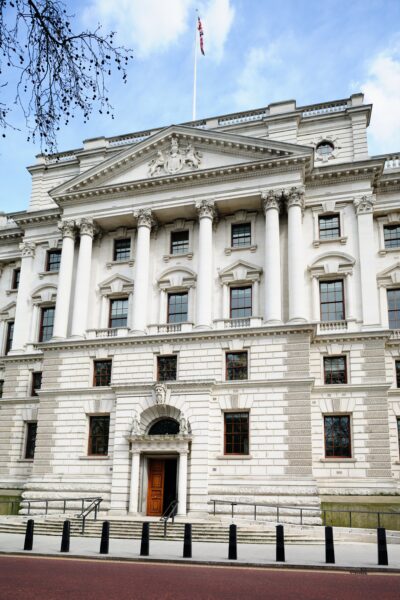21 August 2014
Lobbying is a mucky but essential part of the financial services world

Lobbying is a mucky and murky business. In the crudest terms, it is an industry that is bankrolled by big companies to protect their own interests - and the bigger your budget, the more of an impact you are able to have on major policy decisions.
A new investigation by trade magazine Money Marketing this week attempts to bring some of this underworld out into the daylight - revealing the number of appointments that various large organisations and trade bodies have had with senior figures at the regulator and in government departments over the past year. And at first sight, its findings breed suspicion. Barclays, for example, had no less than 17 meetings with the Department of Business, Innovation & Skills last year - more than the Association of British Insurers and the British Bankers Association put together. What were they about? Why did it meet with BIS six times more than Lloyds?
But like it or not, these meetings and lobbying generally are a critical part of creating fairer banking and insurance markets for consumers. While it may be unfair that larger companies have the budgets and influence to get themselves more meetings, it's hard to believe that better decisions would be made if big businesses weren't consulted. Their expertise and practical understanding of the markets they operate in is invariably much greater than the policymakers who are tasked with making the decisions. Furthermore, big changes tend to only be effective with some co-operation from the industry. Policy-making in a bubble tends to have more unintended consequences.
Transparency can breed suspicion
Greater transparency in this sector is important - but publishing lists of who met who is, unfortunately, only likely to breed more suspicion. In reality, as the Money Marketing investigation acknowledges, the world of lobbying extends far beyond formal diarised meetings. Some of the most effective work on influencing policy is carried out in bars and restaurants, or over the phone, by ex-colleagues - who now sit on different sides of the divide. These are the meetings that will, and can never be reported, lest we want to move to some kind of Big Brother society - where our children's school sports day meetings are logged in a register of interests.
What's most important is that there are enough checks, balances and penalties to ensure that policy decisions are not made as a result of back-handers - either directly or indirectly. And the best way to achieve this is to ensure that big decisions are taken by committee and not by individuals.
Every individual is compromised to a greater or lesser extent. Unless you've managed to hear every view, meet with everyone for the same length of time and have no personal relationships or previous jobs in the sector - you cannot be independent. Creating an entirely independent policymaking system is impossible - but by building in consultation, and encouraging the media to help air the debate, it's possible to get to outcomes that are fair - for both customers and businesses. And by and large, I think we achieve that in the world of banking and insurance.
Over the last few years, the banking industry has spent millions lobbying to avoid the creation of a retail banking ring-fence - but it's a battle they lost. Equally, the insurance industry was turned on its head five months ago, when George Osborne tore up the post-retirement rulebook. The ABI's eight meetings with the Treasury in 2013 did not even buy it enough influence to get a phone call in advance.
Of course there are victories too - but often these are part of a bargaining process. Back to Barclays - who recently became the first bank to launch a "simple" life insurance product, a government idea which most of the industry have scorned. Being a first mover in this market is unlikely to make Barclays any money - and is more likely to prove a sunk cost - but it's quite possible that getting on board with simple products has bought it some slack on another regulatory or policy change (or that it hopes it will in the future).
It's uncomfortable from the outside not knowing exactly what deals are being done behind closed doors. But in a web of complex decisions, a small amount of transparency can do more harm than good. Nevertheless, while records of meetings breed suspicion, they are an important way of letting decision makers know that they are being scutinised.
Thankfully, in politics, we get the chance to reelect or boot out the key decision makers every five years. It's the regulators who perhaps should be subject to some kind of democratic scrutiny. Almost all of the FCA board worked for large financial services firms before they turned gamekeeper. That's why in the end, the media and consumer groups have a critical role in scrutinising regulatory decisons, and exposing bad regulation.

